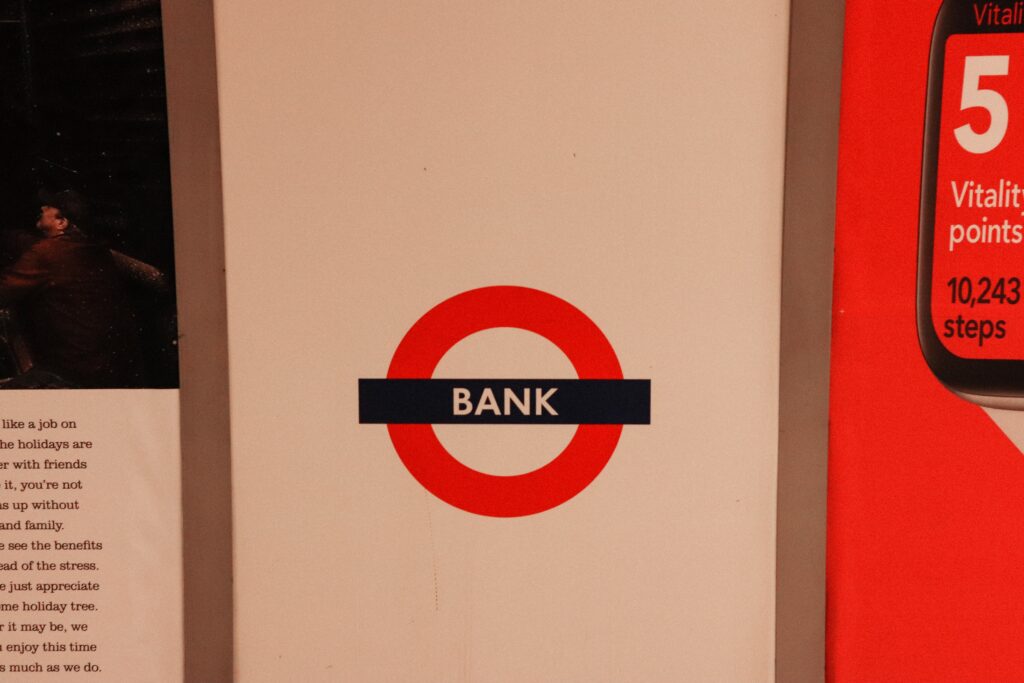
Are you looking for a new bank account? Perhaps you have an old account you no longer use, you’re moving to another country, or you’re in search of lower fees or specific perks.
Regardless of your situation, as your banking needs change, it’s important to adjust accordingly. In this Remitly guide, we’ll take a look at just what steps you can commonly take to close a bank account.
Why should I close an old bank account?
Before we get into the steps typically taken to close bank accounts, let’s explore some reasons why you might decide to get rid of an old account.
Preventing fraudulent transactions
If you have an old account sitting at a bank or credit union that you never use, you could run the risk of becoming a victim of fraud.
People who leave a small amount of money in an account they no longer use may not be as diligent about checking statements for errors or going online to look at pending transactions. As a result, it’s possible to miss fraudulent activity.
In the U.S., laws governing banking and personal finance typically give you only 60 days to report potential fraud. If you’re not closely monitoring an unused bank account, you may miss your window to file a complaint and get your money back. Closing a bank account you no longer use helps prevent problems entirely.
Saving money on unnecessary fees
Many banks and credit unions charge fees for having an account, not maintaining a minimum balance, or allowing an account to enter an inactive status. If you have an unused old account, you may be giving away money to your bank or credit union each month.
Reducing the number of fees that you pay can help to strengthen your personal finance outlook. Over time, small fees can still add up to a large amount. By closing a bank account, you can keep your hard-earned money and put the funds being depleted by monthly fees toward something else.
Protecting your identity
If your account number becomes compromised due to a scam or a data breach, you likely won’t have a way to protect your identity and your money except by closing the account.
Unlike debit card numbers, bank account numbers typically can’t be changed. Instead, experts typically recommend that you close the old account and open a new one at the same bank if you believe your account number may be compromised.
Switching banks
Switching to a new bank is one of the most common reasons for closing bank accounts. You might move to a new area where your current bank doesn’t have branches or choose to open an account at a new bank because it offers more favorable rates on savings accounts, lower fees, or extra perks that you’re not getting with your old account.

How to close a bank account
When closing a bank account, you typically have a few options. Account closure can be completed online, in person at a local branch, by requesting closure in writing, or by calling customer service. The steps required will depend on variables such as the account type and the institution. However, there’s a fairly standard process you can expect. Your bank provider will fill you in concerning any specific details.
How to close a bank account in person
Some prefer heading straight to their financial institution to speak to a customer service representative in person. If you can do so, this can be helpful for real-time feedback. Take your government-issued ID and debit card with you, just in case you need them.
If you plan on opening a new account the same day, inquire ahead of time what you’ll need to bring. For example, will they need to verify your address via bank statements or utility bills?
How to close a bank account online
Most banks will also allow you to close an account online as long as your account is in good standing and has a zero balance. However, you may still need to visit the bank branch to verify and provide a physical signature. Speak to a representative to verify how to close a bank account online.
Fees are associated with closing a bank account under certain circumstances. For example, banks may charge a fee if you close an account within a certain window of time after opening it or if you close an account with a negative balance. Be sure to ask.
How to close a bank account via written request
Some financial institutions will close a bank account if you make a request in writing. If you cannot access the Internet or stop into a branch, contact your bank or credit union to see if they offer this service.
Usually, the request will need to include your banking number and an address to send a check for any remaining funds in the account. Your signature must also match the signature you provided when you opened your account.
How to close a bank account by phone
Banks and credit unions may also perform an account closure by phone, but this practice is less common. If your financial institution offers this service, you’ll likely need to withdraw or transfer funds from the account before you call.
Before beginning the closure process, the customer service representative will likely need to verify your identity. They may ask for your banking number, social security number, and dates and amounts of transactions like deposits or bill payments.
Check your banking agreement
Each bank and credit union has its own rules regarding account closures. The banking agreement you received when you opened the account should detail the different ways to request a closure. If you no longer have the paperwork, call your branch office or your bank’s toll-free number to get specific instructions on what to do to close your account.
What to do after closing your bank account
Closing an old bank account (or credit union account) is a reasonably straightforward process. However, you will need to notify your bank that you’re closing your account. Throughout the process, document everything. Don’t assume an account is closed because a bank employee says it is. The Consumer Financial Protection Bureau recommends getting written confirmation when you close a bank account.
After you close your account, you may want to:
Open a new bank account
If you plan to transfer money elsewhere, you need to open a new checking or savings account before closing your current one. That way, you have somewhere to move your money, receive direct deposits, and make automatic payments. The type of account you open will depend on your goals, whether those include fewer fees or greater flexibility.
Transfer your money
If you transfer the money before officially closing your account, double-check with your bank about a minimum balance. Banks sometimes charge a fee if your account balance is too low before closing.
Also, double-check that you have enough money left over in your old account to pay bills due soon and cover any pending transactions.
Switch automatic payments and direct deposits
Do any subscriptions automatically come out of your account each month? Whether your gym membership, household bill payments, car insurance, or streaming service comes out automatically, you’ll need to change the information for any recurring payments.
Make a list of everything that comes out monthly so that you can address each item, marking off your checklist as you go. Also, if you get paid via direct deposit, you’ll want to update your direct deposit information with your employer to avoid any delays in receiving your paychecks.
Destroy old checks and debit cards
Once your new account is open, shred any debit cards and old checks you still have. Some banks may provide shredding services for you on request.
Will closing a bank account hurt my credit score?
Whether you’re closing a checking or savings account, you may wonder how account closures affect your credit score.
Your bank account doesn’t appear on your credit report as long as they’re in good standing. As a result, you won’t see an impact on your credit score when you close an account.
However, you could damage your credit report if you forget to update automatic bill payments. Should you neglect to let a biller know your new account information and the payment is rejected, you’ll need to pay quickly to avoid late fees.
Normally, creditors don’t add late payments to your credit report until 30 days late.

Closing a bank account FAQs
Have lingering questions about closing a bank account? Read on for answers.
Can you close bank accounts if they have balances?
Normally, banks won’t close an account if money is left in them. As a result, you’ll need to move the remaining funds to your existing account, withdraw the balance in cash, or request the balance in a cashier’s check to close the account.
Does a closed bank account result in a Chexsystems report?
A Chexsystems report is issued if an account gets closed because of overdrafts. If you close an account in good standing, it won’t generate a Chexsystems report.
How do I close a joint account?
At many financial institutions, closing a joint account depends on how the account is titled.
Most joint accounts read PERSON’S NAME or PERSON’S NAME. With this type of account, either person has the right to close the account, and the bank will usually only require one account holder to come to the bank, log into online banking, write a letter, or call.
If your account title reads PERSON’S NAME and PERSON’S NAME, you’ll likely both need to visit the bank in person or sign a letter to request closure.
How do I close an account for a deceased person?
Closing a deceased person’s bank account varies from bank to bank. Normally, you’ll need a copy of the death certificate and a legal document that shows you have the right to act on behalf of their estate unless you’re listed on the account.
How do I close a custodial account?
Rules regarding custodial accounts are complex. If you’re the custodian of an account, contact your financial institution for specific instructions.
How do I close a business bank account?
To close a business account, you’ll typically need an authorized signer to visit a branch. If your business account requires multiple signatures, all signers will likely need to be present.
Can you close an overdrawn account?
Normally, a bank won’t close an account if it has an overdrawn balance.
To close accounts with negative balances, you’ll need to make a deposit to cover the unpaid balance plus any outstanding fees. In some cases, the bank may be willing to waive some or all of the overdraft fees to allow you to close the account.
Will an inactive account automatically close?
In some cases, an inactive account with a zero balance may close automatically within a certain number of days or months. However, each bank has its own rules, so don’t assume that your account will close on its own just because it’s inactive.
What happens if pending transactions come through after account closure?
If you have outstanding transactions that hit your account shortly after closure, it’s possible that the debit may come through, and you’ll be charged an overdraft fee. However, in most cases, the bank will reject the transaction.
Recurring deposits like direct deposits will also likely be sent back to the sender.
What is an early account closure fee?
An early account closure fee is a fee that a financial institution assesses if you close certain accounts within a given time frame. With most savings and checking accounts, banks will only assess this fee if you close the accounts soon after opening them, such as within 14 or 30 days.
What does it mean when banks and credit unions charge off a bank account?
Charge-offs occur when banks and credit unions close savings and checking accounts with negative balances. The amount owed, including unpaid fees, gets sent to a collection agency that tries to obtain the money from the account holder.
Collection agencies often report to the credit bureaus, so having a charged-off account can negatively affect your credit report.
Banks are changing
According to a 2019 report by the Federal Reserve, 22% of Americans (63 million) are either underbanked or unbanked. Although many of those who choose the unbanked route are lower-income, this trend influences people at every income level. Fortunately, more banks and financial apps are cropping up every day to help everyone access secure, convenient banking features.
The key is to find the right alternative options for your unique needs.
As outlined in the article, 5 Top Online-Only Banks in the U.S. (and 1 Popular Alternative), mainstream banks are no longer your only option.
Whether you use a traditional bank or other accounts as alternatives, Remitly can help you make international money transfers quickly, easily, and affordably. Download the app to learn more and get started.
